The Health Effects of Lead
Exposure to lead in drinking water can cause serious health effects in all age groups. Infants and children can have decreases in IQ and attention span. Lead exposure can lead to new learning and behavior problems or worsen existing learning and behavior problems. The children of women who are exposed to lead before or during pregnancy can have increased risk of these negative health effects. Adults can have increased risks of heart disease, high blood pressure, and kidney, or nervous system problems.
Steps You Can Take to Reduce Lead in Drinking Water
If you're concerned about lead in your drinking water, consider these actions. This list isn't exhaustive but offers some helpful steps you can take. The effectiveness of each action may vary.

Clean Your Aerator
Keep your faucet's aerator clean. Sediment and debris can build up in it, potentially trapping lead particles. Regularly cleaning your aerator can help prevent lead from entering your drinking water.

Use Cold Water
Avoid using hot tap water for drinking, cooking or making baby formula. Lead dissolves more readily in hot water. Boiling the water won't remove the lead.

Run Your Water to Flush Out Lead
Flush your home's pipes before drinking. Running the tap, taking a shower or doing laundry can help remove lead that may have accumulated in your pipes. The longer water sits in your pipes, the higher the risk of lead contamination. The amount of time needed to flush your pipes will depend on factors like whether you have a lead service line and the layout of your plumbing. Flushing the tap until the water temperature changes can be a sign that the water is now coming from the main and not the service line.
Water from the main should have no measurable lead content within the water.

Use Your Filter Properly
A certified lead filter can help reduce lead in your drinking water. Follow the manufacturer's instructions for proper installation, maintenance and replacement. Using an expired cartridge may decrease its effectiveness. Avoid running hot water through the filter. For more information on home water filtration systems, visit EPA’s website.

Have Your Water Tested by a Certified Laboratory
If you would like to have your drinking water tested for lead, there are options in our area. Please call the company you choose for further instructions.
- ND DEQ: 701.328.6140
- RMB Environmental Laboratories Inc.: 218.846.1465 or Toll Free 1.888.200.5770
- Minnesota Valley Testing Laboratory: 701.258.9720 or Toll Free 1.800.279.6885
Visit this ND Environmental Quality publication for more information: Testing for Lead in Drinking Water
Visit this EPA link for more information: Can I get my water tested for lead? | US EPA
If you need further assistance, please call the Fargo Water Treatment Plant Lab at 701.476.4089

Consider Consulting Your Healthcare Provider
We understand this might be a concern and we encourage you to consult your doctor or pediatrician for personalized guidance on lead exposure and potential health effects. They can advise on whether a blood test is necessary and provide more specific information relevant to your health. For additional resources on lead in drinking water, visit the EPA's website.

